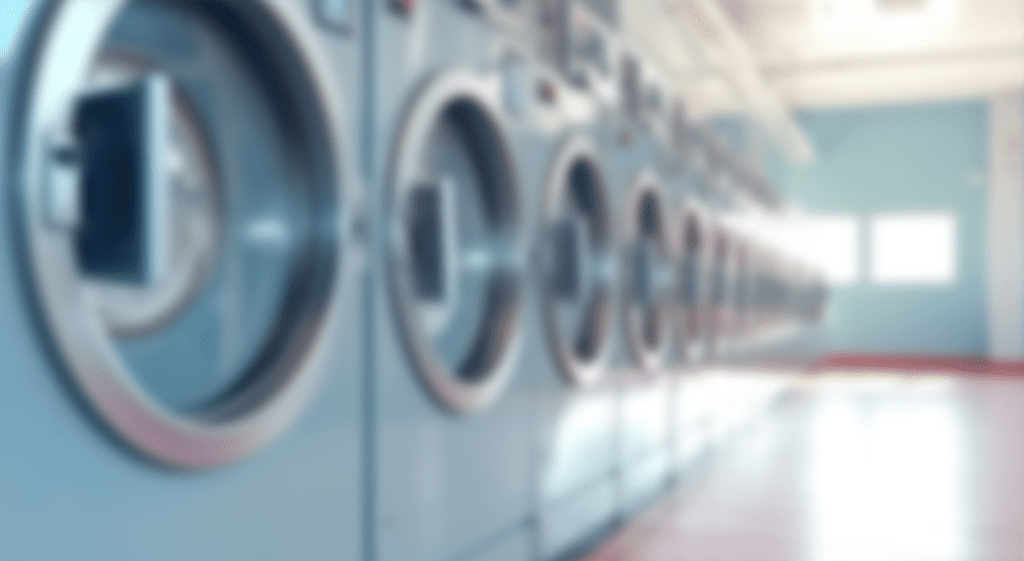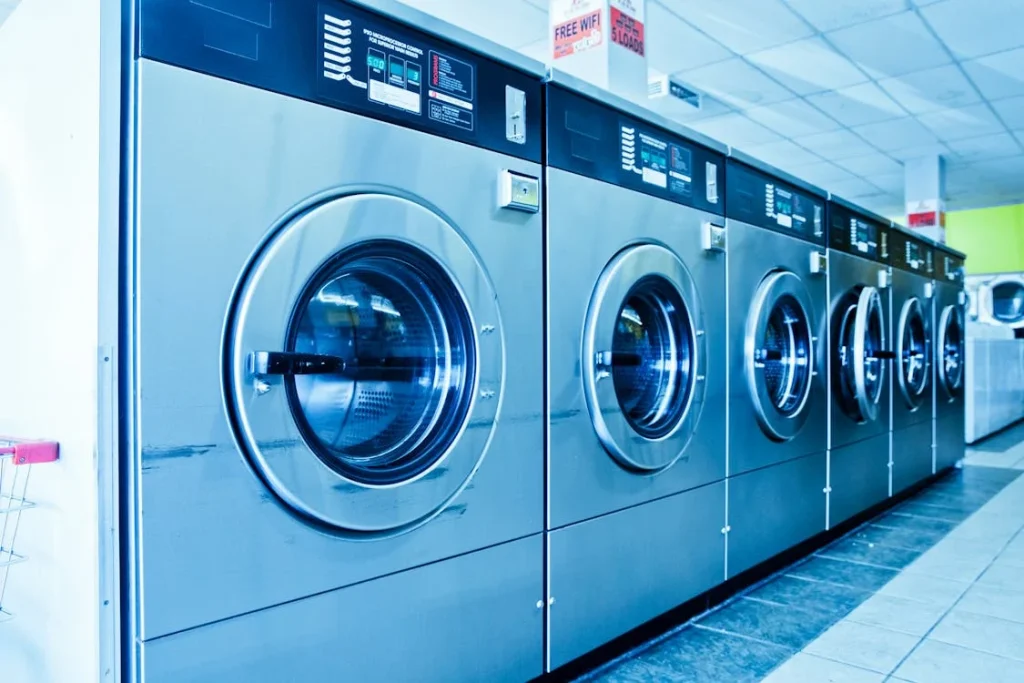Maintaining impeccable hygiene is no longer optional—it’s a necessity. Whether it’s hospitals, hotels, or restaurants, meeting hygiene standards ensures customer trust and regulatory compliance. But how do businesses consistently achieve cleanliness at scale? The answer lies in industrial laundry solutions. With cutting-edge technology, specialized detergents, and strict protocols, industrial laundry guarantees sanitation, eliminating bacteria, viruses, and stubborn stains.

If you’re looking to elevate your laundry operations and maintain top-tier hygiene, read on. This guide covers everything from industrial laundry’s role in cleanliness to best practices for businesses.
Why Hygiene Standards Matter in Industrial Laundry
The Role of Industrial Laundry in Public Health
Industrial laundry services play a crucial role in public health, especially in healthcare facilities where contaminated linens can spread infections. Proper washing techniques and high-temperature disinfection help eliminate harmful pathogens. Hospitals, nursing homes, and clinics rely on industrial laundry services to maintain a sterile environment, reducing cross-contamination risks.
Dirty laundry in medical environments can harbor dangerous bacteria, including MRSA, C. difficile, and E. coli. Without industrial-level sanitation processes, these pathogens can spread, endangering both patients and healthcare workers.
How Clean Laundry Impacts Customer Perception
Would you book a hotel room with stained sheets? Probably not. Clean linens signal professionalism, quality, and care. Whether it’s a restaurant’s napkins, a hotel’s bed linens, or a factory’s work uniforms, spotless laundry enhances reputation. Customers expect pristine, fresh-smelling fabrics, and businesses that fail to deliver risk losing clients to competitors.
In the hospitality sector, cleanliness plays a direct role in customer satisfaction. According to surveys, unclean linens rank among the top complaints in hotels. A single negative review about unclean sheets can significantly impact bookings and brand image.
Understanding Industrial Laundry Solutions
What Is Industrial Laundry?
Unlike regular washing, industrial laundry involves large-scale, high-efficiency washing systems designed to handle heavy loads and stringent hygiene requirements. These facilities process linens, uniforms, and textiles for industries where cleanliness is non-negotiable.
Industrial laundry services utilize automated washing systems, precise chemical dosing, and strict hygiene protocols to ensure optimal cleanliness and efficiency. Unlike home or small commercial washing machines, industrial laundry equipment can handle thousands of pounds of laundry per day, making them ideal for large-scale operations.
Key Differences Between Commercial and Industrial Laundry
While commercial laundries serve smaller businesses, industrial laundry systems cater to high-volume operations. Industrial machines use advanced disinfection methods, higher wash temperatures, and specialized detergents to meet strict sanitation standards.
Additionally, industrial laundries integrate water and energy-efficient technologies to reduce operational costs while ensuring maximum hygiene. They often include tunnel washers, continuous batch washers, and large industrial dryers to streamline processes and maintain consistency.
The Science Behind Industrial Laundry Cleaning
Advanced Cleaning Technologies for Maximum Hygiene
Modern industrial laundry facilities incorporate ozone sanitation, thermal disinfection, and ultrasonic washing to remove dirt and bacteria effectively. These methods ensure that linens come out thoroughly cleaned and safe for use.
Some facilities utilize automated dosing systems, ensuring that the correct amount of detergent, bleach, and softeners are used in every cycle. This not only guarantees cleanliness but also prevents chemical residues that could irritate the skin.
How Temperature and Detergents Kill Germs
A combination of high heat (above 160°F) and industrial-strength detergents ensures the destruction of bacteria and viruses. Enzyme-based cleaners break down proteins, while bleach and disinfectants provide an extra layer of protection.
Certain pathogens can survive at lower temperatures, making thermal disinfection a key step in industrial laundry. Additionally, steam finishing and heat drying further eliminate any residual microorganisms.
The Importance of Disinfection in Industrial Laundry
Beyond cleanliness, disinfection eliminates microbial threats. Industrial laundries utilize antibacterial agents, UV sanitation, and ozone washing to prevent contamination. This is especially vital for healthcare and food service industries, where hygiene regulations are strict.
Industries That Rely on Industrial Laundry Services
Healthcare and Hospital Linens
Hospitals generate tons of contaminated linens daily. Industrial laundry ensures compliance with medical hygiene regulations, preventing hospital-acquired infections. Sterilization, high-temperature washing, and antibacterial treatments are standard procedures for medical linens.
Hotels, Resorts, and Hospitality Industry
Luxury hotels and resorts depend on fresh, clean sheets and towels. Industrial laundry guarantees consistency, maintaining impeccable guest experiences. Soft, well-maintained linens enhance customer satisfaction and ensure positive reviews.
Restaurants and Food Service Businesses
From tablecloths to chef uniforms, restaurants require flawless cleanliness to comply with food safety laws and enhance customer trust. Grease, food stains, and odors are efficiently removed using powerful detergents and high-pressure washing systems.
Workwear and Uniforms in Industrial Settings
Industries like manufacturing, construction, and logistics rely on industrial laundry to sanitize workwear, removing oil, chemicals, and contaminants. Fire-resistant, chemical-resistant, and high-visibility uniforms require specialized washing processes to maintain their protective qualities.
Best Practices for Maintaining Hygiene in Industrial Laundry
Proper Sorting and Handling of Laundry
To prevent contamination, dirty linens must be sorted and handled separately. Industrial laundries implement strict protocols, including color-coded bins and separate wash cycles for different fabric types.
Choosing the Right Industrial Washing Machines
Investing in high-capacity, energy-efficient machines enhances hygiene and reduces operational costs. Industrial washers feature programmable settings to ensure proper disinfection and fabric care.
Implementing Strict Quality Control Measures
Regular inspection, testing, and adherence to hygiene protocols guarantee that cleaned linens meet regulatory standards before being returned to clients. Swab testing, ATP (adenosine triphosphate) testing, and microbial analysis ensure that laundry meets hygiene standards.
The Future of Industrial Laundry: Sustainability and Innovation
Eco-Friendly Detergents and Water-Saving Technology
Green industrial laundry solutions are on the rise. Businesses are adopting biodegradable detergents and water-recycling systems to minimize environmental impact. Low-temperature washing with enzyme-based detergents further reduces energy consumption.
Automation and AI in Industrial Laundry
The future of industrial laundry lies in automation and artificial intelligence. Smart systems optimize washing cycles, reduce human error, and ensure consistency. RFID tracking systems enable real-time monitoring of laundry inventory and improve efficiency.
Conclusion: Ensuring Guaranteed Cleanliness
Achieving hygiene standards in industrial laundry isn’t just about washing fabrics—it’s about ensuring public health, customer trust, and regulatory compliance. Whether you’re in healthcare, hospitality, or food service, investing in industrial laundry services is the key to guaranteed cleanliness.
If you’re ready to upgrade your laundry operations, visit www.spinwashing.com for expert solutions tailored to your industry needs!
FAQs
1. What temperature is best for disinfecting laundry?
For effective disinfection, wash linens at 160°F or higher with an appropriate disinfectant.
2. How often should hotel linens be washed?
Hotel linens should be washed after every guest’s stay to maintain hygiene and customer satisfaction.
3. What makes industrial laundry different from home washing?
Industrial laundry uses high-capacity machines, advanced detergents, and strict sanitation protocols for guaranteed cleanliness.
4. Can industrial laundry remove tough stains like oil and grease?
Yes! Industrial laundry uses specialized detergents and high-pressure washing to remove stubborn stains.
5. How can businesses reduce water usage in industrial laundry?
Implementing water-recycling systems and eco-friendly detergents helps minimize water waste and environmental impact.
Here are some other articles that we think might interest you:
Is Industrial Laundry Right for Restaurant?
Industrial Laundry Costs: Key Factors for Calculation
How Industrial Laundry Business Growth Supports Our business?


